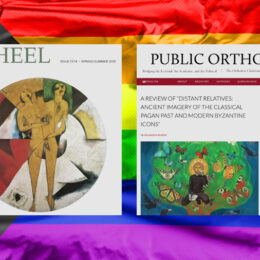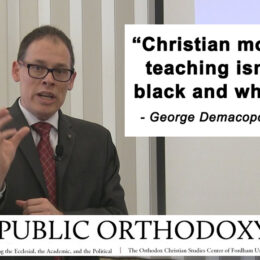 Townhall.com George Will April 12, 2007
Townhall.com George Will April 12, 2007
WASHINGTON — In a campaign without peacetime precedent, the media-entertainment-environmental complex is warning about global warming. Never, other than during the two world wars, has there been such a concerted effort by opinion-forming institutions to indoctrinate Americans, 83 percent of whom now call global warming a “serious problem.” Indoctrination is supposed to be a predicate for action commensurate with professions of seriousness.
For example, Democrats could demand that the president send the Kyoto Protocol to the Senate so they can embrace it. In 1997, the Senate voted 95-0 in opposition to any agreement which would, like the protocol, require significant reduction of greenhouse-gas emissions in America and some other developed nations but would involve no “specific scheduled commitments” for 129 “developing” countries, including the second, fourth, 10th, 11th, 13th and 15th largest economies (China, India, Brazil, South Korea, Mexico and Indonesia). Forty-two of the senators serving in 1997 are gone. Let’s find out if the new senators disagree with the 1997 vote.
[ … ]
Nature designed us as carnivores, but what does nature know about nature? Meat has been designated a menace. Among the 51 exhortations in Time magazine’s “global warming survival guide” (April 9), No. 22 says a BMW is less responsible than a Big Mac for “climate change,” that conveniently imprecise name for our peril. This is because the world meat industry produces 18 percent of the world’s greenhouse-gas emissions, more than transportation produces. Nitrous oxide in manure (warming effect: 296 times greater than that of carbon) and methane from animal flatulence (23 times greater) mean that “a 16 ounce T-bone is like a Hummer on a plate.”
. . . more




Support for Will’s argument comes from an unexpected source.
Chris Mooney, author of the Republican War on Science, writes:
Note 1. I read the article but found it interesting for different reasons.
Nisbet and Mooney miss the point. Aggresive atheism requires the Darwinian hypothesis for the simple reason that any world view (call it a belief system if you want) requires a creation narrative to give it meaning and purpose. Without Darwin, atheism would slip into nihilism overnight since it would have no recourse to the past and thus no meaning in the present.
Dawkins is no nihilist. He can’t be because of the teleological principles he attributes to science (should we call it scientism?) that, ironically, predate the development of the scientific method and have their philosophical origin in Genesis. Nisbet and Mooney miss this point entirely, and as American journalists are wont to do, perceive the conflict in solely pragmatic terms. Hence their conclusion that the real problem is one of public relations. Just sharpen the presentation they tell Dawkins, and the victory will be yours.
What they don’t see (but Dawkins might) is that the greatest threat to the Darwinian hypothesis is science itself, and not religiously minded people. (See: George Gilder Evolution and Me.) And the reason they are blind to this is that they accept the outlines of the debate as defined within popular culture — essentially framed as a (false) dichotomy: religion vs. science — and conclude this settles the matter.
Dawkins’ radical atheism relies on the Darwinian hypothesis, but the hypothesis rises and falls on the veracity of the philosophical materialism that gives it coherence and structure. This is the faith that Dawkins is trying to protect. Nisbet and Mooney don’t understand this at all.
I think we are in the beginnings of a huge cultural shift. Who would have thought that post-modernism would have outlined so well the differences between science and scientism?